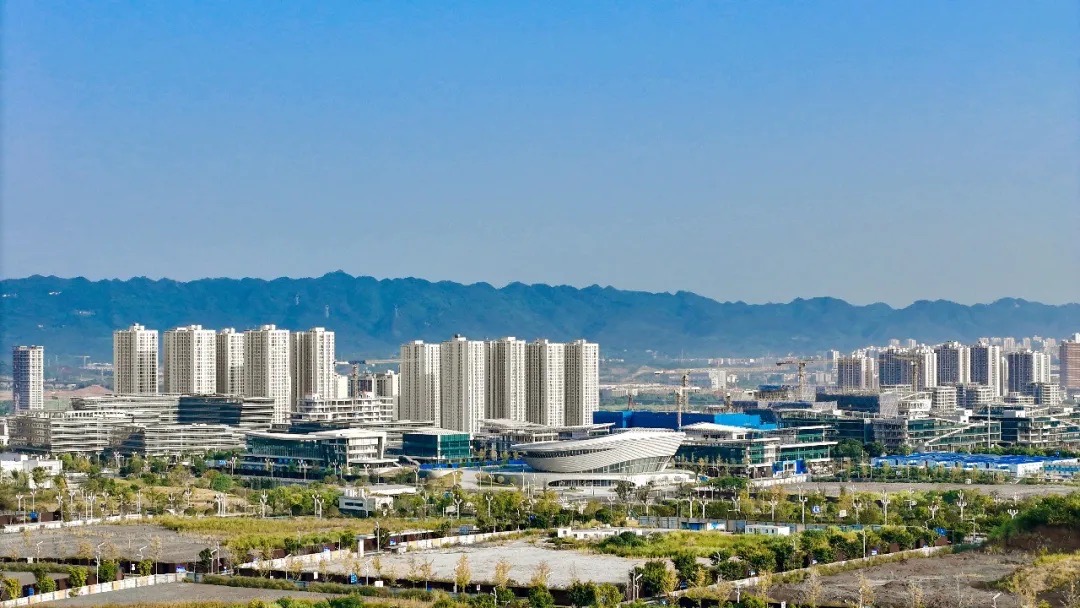 Bridging News
Bridging News
ADB Backs Chongqing Hi-Tech Zone's Green Transition with $200 Million Loan | Insights
Chongqing - The Asian Development Bank (ADB) has approved its first results-based lending (RBL) project in Chongqing, granting a $200 million loan to develop the Chongqing Hi-Tech Industrial Development Zone into a green, low-carbon area, Chen Dong, Manager of the Chongqing Gaoxin District Green and Low-Carbon Urban Development Program, told Bridging News on October 24.
Unlike traditional loans with fixed plans and fund allocations, RBL offers flexible financial support. It disburses funds based on the achievement of specific performance indicators rather than strict spending guidelines.

Western (Chongqing) Science City. (Photo/Chongqing Hi-Tech Industrial Development Zone)
Chen noted that the Chongqing Gaoxin District Green and Low-Carbon Urban Development Program involves a total investment of six billion yuan, of which 1.45 billion yuan was financed by the ADB loan.
The loan will be disbursed in stages over six years, tied to seven specific indicators, such as carbon reduction and water quality improvements. Progress will be monitored to ensure goals are met, with flexible fund allocation to adapt to the project’s evolving needs.
"This approach allows funds to be allocated where they are most needed throughout the project’s lifecycle," Chen explained.
Focusing on collaboration, infrastructure, and research
The loan will be primarily utilized in three key areas: enhancing cross-departmental collaboration, upgrading infrastructure, and promoting scientific research. Chen added that these components are critical to the zone’s green and low-carbon transformation.
First, the project aims to enhance cross-departmental collaboration by strengthening governance and improving coordination within the Hi-Tech Zone. This approach will help better manage carbon reduction efforts while also driving public awareness and talent development to ensure the workforce is ready to support the zone’s green initiatives.
Second, a significant portion of the funding will be dedicated to infrastructure development. The project will focus on constructing energy-efficient facilities, including the establishment of energy stations and water recycling mechanisms.

The Jinfeng City Center project, located in Chongqing Hi-Tech Industrial Development Zone, is a two-star green building. (Photo/Chongqing Hi-Tech Industrial Development Zone)
Chen highlighted that green buildings will be a major focus, with efforts to certify structures at one-star or higher levels. Furthermore, a centralized cooling system will be introduced, utilizing air-source technology to deliver more energy-efficient cooling solutions.
Third, scientific research is essential to the zone’s long-term sustainability, particularly in urban resilience and extreme weather preparedness. The project will support studies on sustainable development, flood control, and urban climate modeling, helping the zone better manage climate challenges like floods.
Requiring 50% of female public officials
Beyond its environmental objectives, the program emphasizes gender diversity and social equity.
A key performance indicator mandates that at least 5,000 public officials receive training on critical environmental topics, with women making up at least half of the participants. This approach aims to equip women with valuable skills while integrating gender equality into the project's implementation.
This focus aligns with ADB’s broader commitment to social responsibility and inclusive growth. By encouraging greater female participation in the green economy, the project aims to set an example of social inclusivity in the region’s development.
As Chen noted, the program not only seeks to deliver short-term achievements but also aims to foster long-term sustainable development in the zone, contributing significantly to the city’s broader carbon peaking and carbon neutrality targets.
 Related Stories
Related Stories